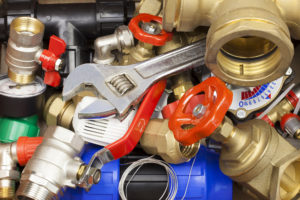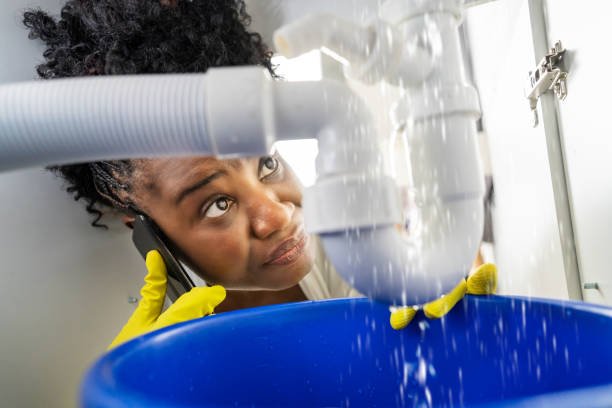Emergency Tips: What to Do Until Support Arrives
Emergency Tips: What to Do Until Support Arrives
Blog Article
Are you currently trying to find information involving What to Do While Waiting for an Emergency Plumber?

Pipes emergency situations can strike any time, triggering tension and prospective damages to your home. Whether it's a ruptured pipe, a blocked drainpipe, or a dripping faucet, recognizing exactly how to manage the scenario up until a professional plumbing technician shows up can conserve you from additional complications. This post provides crucial emergency pipes suggestions to aid you reduce damages and restore control throughout a plumbing situation.
Shut off the Water Supply
The initial step in any kind of plumbing emergency situation is to shut off the water. For local problems, such as a dripping faucet or commode, shut off the shutoff near the fixture. When it comes to a major leakage or burst pipe, situate your home's primary water shut-off shutoff and turn it off quickly. Recognizing the area of these shutoffs in advance can conserve valuable time throughout an emergency situation.
Turn off Your Hot Water Heater
In certain emergencies, such as a ruptured pipeline, it's wise to turn off your hot water heater. This avoids overheating or damage to the system when water stops streaming. Shut off the power supply to the water heater (electrical or gas) and allow it cool to stay clear of possible hazards.
Temporarily Stop a Burst Pipe
A burst pipe can cause considerable water damages in mins. To minimize the concern:
Call an expert plumbing right away to deal with the problem permanently.
Have an Emergency Plumbing Kit
Prepare a basic plumbing emergency package to take care of small concerns properly. Your package must include:
Having these devices on hand can make a significant distinction in your capability to manage emergencies.
Unclog Drains Securely.
A stopped up drain can be an aggravating and unpleasant problem. Below's exactly how to tackle it:.
If these techniques don't function, avoid making use of too much force, as it may intensify the blockage.
Take Care Of Overflowing Toilets.
An overruning bathroom can cause instant disorder. Here's what you must do:.
Address Small Leakages with Short-lived Fixes.
Little leakages can quickly end up being substantial problems if left unattended. Utilize these short-lived fixes until professional assistance shows up:.
While these solutions aren't irreversible, they can aid minimize water loss and damages.
Handle Frozen Pipeline Very Carefully.
In cooler environments, icy pipelines are a common emergency situation. If you suspect a frozen pipe:.
Know When to Call a Professional.
While quick fixes can help momentarily, specific plumbing issues require prompt specialist attention. Call a plumbing if:.
Immediately calling an expert ensures the concern is solved properly and avoids further complications.
Prevent More Damages.
Taking quick action to lessen damages can save you time and money in the future. Right here's how:.
Verdict.
Plumbing emergencies can be frustrating, but with the appropriate understanding and tools, you can take care of the circumstance effectively till assistance gets here. By shutting off the water supply, resolving small leakages, and using short-lived fixes, you can decrease damage and maintain your home safe. Remember, these pointers are short-term remedies; always seek advice from a licensed plumbing professional to deal with the origin of the issue. Prep work and quick reasoning are your ideal allies in any pipes emergency situation.
8 Helpful Tips for Managing Plumbing Emergencies at Home
If your plumbing system hasn’t failed once, wait for it because almost everyone has a story to tell. Sometimes, it could be simple emergencies such as a leaking pipe, a blocked cistern, or even a big burst pipe. In situations like this, you need to have some handy tips to save you some money and from possible damages.
Take care of minor issues early.
Sometimes, you could have avoided an emergency by taking proactive measures while it was still early. Some major plumbing emergencies can be a result of an ignored minor issue. We recommend that you have items like plumbing tapes and other related items. A plumbing tape can allow you to manage minor leaks before the plumber arrives.
Cut off the water supply.
This tip is essential in almost any type of leakage problem. For problems like minor leakages in the toilet or kitchen, turn off the supply that takes water to the affected pipes. If the leakage is a major pipe, you must shut off the supply valve to the entire building. This will help you avoid flooding your home and neighbors if you share a flat.
Know your plumbing system
Folks typically move into a new apartment without understanding the water supply around the building. This can prove disastrous if a water emergency arises and the plumber is far away. The previous tip will prove useless if you don’t practice this one. More importantly, know where your water shut-off valve is located – you’ll need that knowledge to prevent potential home floods.
Have some common handy tools
There are lots of plumbing emergencies that you can handle without hiring a plumber. That’s why you must keep some tools available always. Some tools that you can use to fix simple plumbing emergencies easily include plumbing tapes, screwdrivers, thread seal tapes, plungers, pliers, tape measures, and rubber gloves.
Insulate your pipes from cold
You’ll save yourself from many plumbing expenses if you protect your water pipes from the cold. This is because of the harmful effects that cold weather can have on your pipes. During winter, your pipes can burst from being overly expected to freezing temperatures. So, make sure insulators are there to keep the pipes working correctly.
Avoid practices that will clog your toilet.
Many people indulge in practices that can damage the plumbing system of the entire building. One of these is when they use their toilet to dispose-off garbage. They flush all kinds of things, such as paper towels, bandages, hairs, female sanitary products, etc., down the toilet. This will block your toilet in the long run, incurring unnecessary expenditures. Dump such waste in the trash instead.
Check your dials regularly.
Sometimes, there could be leakages in your home without noticing them in time. So, constantly monitor your water meter dial. If the dial is reading when there is nobody using water, this is an indicator that there is leaking. Check for leaks immediately. Call a plumber as soon as possible if you can’t find any.
https://www.constructionplacements.com/8-helpful-tips-for-managing-plumbing-emergencies-at-home/

I'm certainly very focused on Plumbing Emergencies: Tips on What To Do Before and I really hope you enjoyed reading the entire page. Are you aware of somebody who is excited by the niche? Feel free to share it. Many thanks for your time invested reading it.
About Report this page